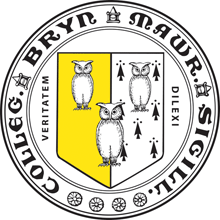 Does Your Brain Use Symbols or Distributed Representations?
Does Your Brain Use Symbols or Distributed Representations? Dr. James McClelland
Center for Mind, Brain and Computation
Stanford University
Wednesday, April 22, 2009 at 04:30 PM
Mendel Science Center 154
Villanova University
Maps and Directions
Abstract
I will describe research on semantic cognition that relies on distributed representations instead of symbols. I will describe models that use distributed representations to explain a lot of phenomena in child development, adult cognition, and the disintegration of conceptual knowledge in a disorder called semantic dementia. Among the aspects of semantic cognition addressed are differentiation and reorganization of conceptual knowledge in development, domain and context specificity of inductive inference, semantic illusions, and conceptual grounding of knowledge from one domain in knowledge from another domain. The approach will be compared with the symbolic structured Bayesian approach taken by others.
Speaker Bio
Dr. James McClelland , Stanford University - Center for Mind, Brain and Computation
Jay McClelland received his Ph.D. in Cognitive Psychology from the University of Pennsylvania in 1975. He served on the faculty of the University of California, San Diego, before moving to Carnegie Mellon in 1984, where he became a University Professor and held the Walter Van Dyke Bingham Chair in Psychology and Cognitive Neuroscience. He was a founding Co-Director of the Center for the Neural Basis of Cognition, a joint project of Carnegie Mellon and the University of Pittsburgh. He served as Co-Director until 2006. In that year he moved to Stanford University, where he is now Professor of Psychology and founding Director of the Center for Mind, Brain and Computation.
Over his career, McClelland has contributed to both the experimental and theoretical literatures in a number of areas, most notably in the application of connectionist/parallel distributed processing models to problems in perception, cognitive development, language learning, and the neurobiology of memory. He was a co-founder with David E. Rumelhart of the Parallel Distributed Processing research group, and together with Rumelhart he led the effort leading to the publication in 1986 of the two-volume book, Parallel Distributed Processing, in which the parallel distributed processing framework was laid out and applied to a wide range of topics in cognitive psychology and cognitive neuroscience.
McClelland and Rumelhart jointly received the 1993 Howard Crosby Warren Medal from the Society of Experimental Psychologists, the 1996 Distinguished Scientific Contribution Award (see citation) from the American Psychological Association, the 2001 Grawemeyer Prize in Psychology, and the 2002 IEEE Neural Networks Pioneer Award for this work. McClelland has served as Senior Editor of Cognitive Science, as President of the Cognitive Science Society, and as a member of the National Advisory Mental Health Council, and he is currently president-elect of the Federation of the Behavioral, Psychological, and Cognitive Sciences. He is a member of the National Academy of Sciences, and he has received the APS William James Fellow Award for lifetime contributions to the basic science of psychology.
McClelland currently teaches cognitive psychology and cognitive neuroscience and conducts research on learning, memory, conceptual development, spoken language, decision making, and semantic cognition.
Refreshments will be served in MSC 159 after the talk.





